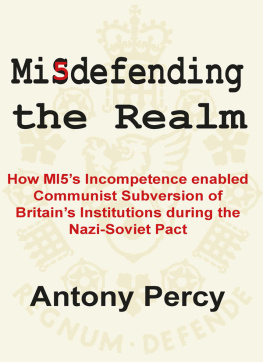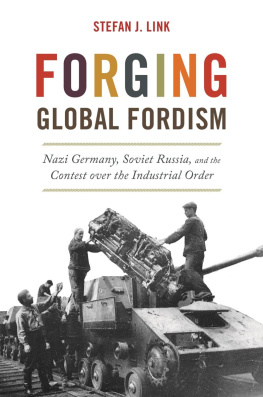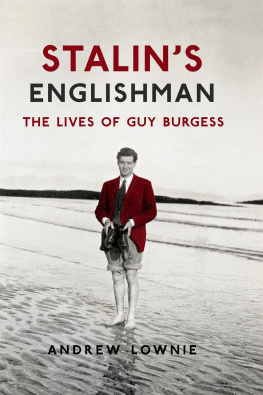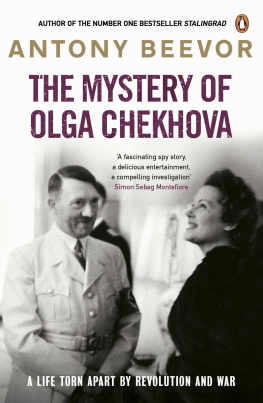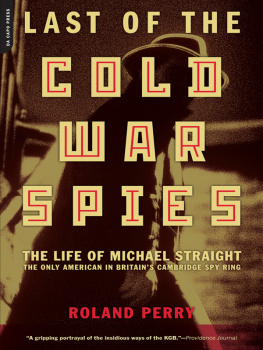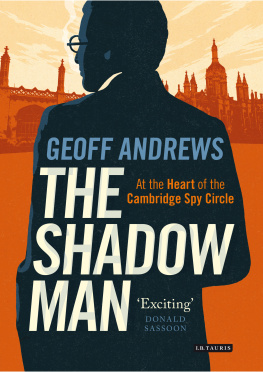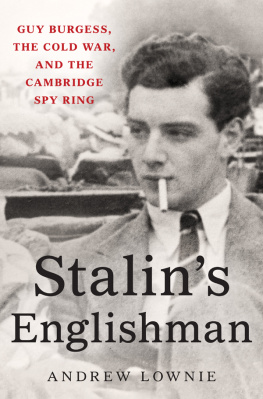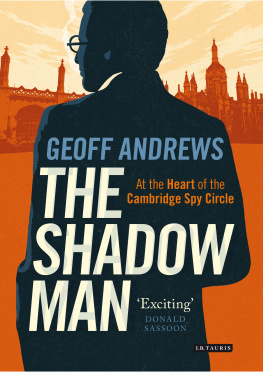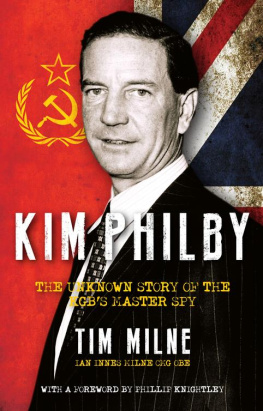Contents
Guide
MISDEFENDING
THE REALM
How MI5s Incompetence Enabled Communist Subversion of Britains Institutions during the Nazi-Soviet Pact
MISDEFENDING
THE REALM
How MI5s Incompetence Enabled Communist Subversion of Britains Institutions during the Nazi-Soviet Pact
by Antony Percy
The University of Buckingham Press
First published in Great Britain in 2017
The University of Buckingham Press
Yeomanry House
Hunter Street
Buckingham MK18 1EG
Antony Percy
The moral right of the author has been asserted.
All rights reserved. No part of this publication may be reproduced, stored or introduced into a retrieval system or transmitted in any form or by any means without the prior permission of the publisher nor may be circulated in any form of binding or cover other than the one in which it is published and without a similar condition including this condition being imposed on the subsequent purchaser.
A CIP catalogue record for this book is available at the British Library
ISBN 978-1-908684-96-7
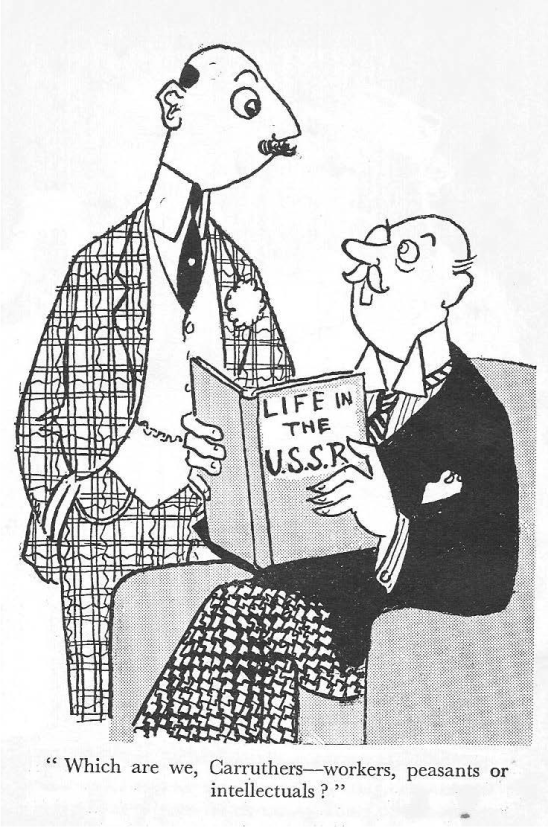
This work is dedicated to my parents, Freddie (1911-2006) and Mollie (1916-2011), who sadly did not survive to see me undertake the project, but who would have been its most enthusiastic supporters.
Contents
List of Illustrations
Frontispiece: Osbert Lancaster: Which are we? (Daily Express 1941)
Plate 1: Osbert Lancaster: Strictly neutral (Daily Express 1940)
Plate 2: Osbert Lancaster: Suspicion (Daily Express 1941)
Plate 3: Osbert Lancaster: Ex-service men? (Daily Express 1940)
Plate 4: Osbert Lancaster: Anybody from MI5 (Daily Express 1940)
Plate 5: Osbert Lancaster: Careless talk (Daily Express 1943)
Plate 6: Osbert Lancaster: MCC (Daily Express 1940)
Plate 7: Osbert Lancaster: Pull him (Daily Express 1940)
Plate 8: Osbert Lancaster: Its a fine state (Daily Express 1949)
Plate 9: Isaiah Berlin: Cecil Beaton Archive
Plate 10: Guy Burgess: (BBC)
Plate 11: Kim Philby: (NPR)
Plate 12: Klaus Fuchs: (Christ Church Matters)
Plate 13: Rudolf Peierls
Plate 14: Ursula Beurton
Plate 15: Guy Liddell
Plate 16: Lord Rothschild
Plate 17: Dick White
Plate 18: Jane Archer
Plate 19: Lord Halifax and Maxim Litvinov
Plate 20: Walter Krivitsky
Plate 21: David Langdon: Secret Agent (Punch November 1940)
Plate 22: L Burcaill: Wheres your Permit? (Punch December 1940)
Plate 23: Paul Crum: Foreign-Looking Fellow (Punch April 1940)
Plate 24: Pont: Hush-hush (Punch November 1940)
Plate 25: Anton: Youll have to learn German (Punch April 1940)
Plate 26: Anton: Well its no longer hush-hush (Punch March 1945)
Plate 27: Bernard Partridge: The Two Constrictors (Punch November 1939)
End page: Osbert Lancaster: June 23rd (Daily Express 1941)
All Punch cartoons are Copyright Punch Limited: Punch Cartoon Library
All Osbert Lancaster cartoons are Daily Express
Osbert Lancaster (1908-1986) was the pioneer of the pocket cartoon, his first example appearing in the Daily Express in 1939. He skillfully lampooned authority figures during World War II, but never maliciously, and his insights into the ironies and absurdities with which the war was sometimes engaged brought entertaining relief to persons in all walks of life.
For other illustrations every effort has been made to trace and acknowledge ownership.
Acknowledgments
I should like to thank my supervisor at the University of Buckingham, Professor Anthony Glees, for his constant encouragement, for the deep provocative discussions he engaged in with me, and for his insightful guidance on the underlying argument of the thesis that fostered this book. He tried to keep me focused when my natural curiosity tempted me to follow any number of attractive leads. I am also grateful to Sir Anthony Seldon and Professor Christopher Coker for their insightful remarks when acting as examiners for my thesis. I also thank my brother, Michael, for performing occasional research on my behalf at the National Archives at Kew when documents I needed to see were not available for acquisition and downloading to North Carolina.
I am very grateful to Simon Albert, Jill Bennett, Arie Dubnov, Geoffrey Elliott, Gary Kern, Nicola Lacey, Andrew Lownie, Steve Miner, Clare Mulley, Verne Newton, Nicholas Pronay, Jennifer Rees, Andrew Roberts, Arieh Saposnik, Matthew Spender, John Sutherland, Karina Urbach, Boris Volodarsky, Nigel West, Mary-Kay Wilmers, and Jim Wilson, for responding to my emailed inquiries. I am especially grateful to Henry Hardy, Isaiah Berlins primary editor and amanuensis, for his help in identifying sources and in providing me with unpublished material on Berlin: his co-editors, Jennifer Holmes and Mark Pottle, have also provided much assistance. I shall not name the few historians and authors who declined to answer (or even acknowledge) my emailed inquiries.
The archivists at the institutions that I have been able to visit were uniformly positive and helpful, namely those responsible for the National Archives at Kew, the Isaiah Berlin Collection and the papers of Sir Joseph Ball and Sir Patrick Reilly at the Bodleian Library, Oxford, the Harold Nicolson Archive at Balliol College, Oxford, and the Cadogan Papers at Churchill College, Cambridge. I thank them, too.
My editor, Christopher Woodhead, at Buckingham University Press, has been a patient and amiable guide through the process of producing this book. We have co-operated on a challenging editing exercise, and I thank him most sincerely. Any errors in the text (or in the Biographical Index, or in the main Index, which are both my handiwork) are my responsibility. I should be grateful if readers could bring any mistakes they find to my attention, by contacting me at .
Lastly, I should like to thank my wife, Sylvia, for her patience throughout this project. She has rightly concluded that I am not actually a spy, but merely an analyst of espionage.
Foreword
The research activity that spawned this book was provoked when I opened the first volume of Isaiah Berlins Letters, and noticed that it was dedicated to an infamous Soviet spy, Jenifer Hart. This apparent intimacy between, on the one hand, a reputedly great defender of Western liberalism and, on the other, a subversive academic wedded to the notion of destroying the same liberalism on Stalins behalf, led me on a wide-ranging research project. The exploration focused initially on Berlins bizarre relationship with the Soviet spy, Guy Burgess, and their planned mission to Moscow in 1940, and then expanded to inspect the defection of Walter Krivitsky, including MI5s rather irregular policies and practices at that time, up to the Services deplorable attempt to cover up the events leading to the trial of Klaus Fuchs.
As the books title declares, the focus of my research has very much been on the challenge to Britains security represented by the activities of Stalins intelligence services in the period between the signing of the Nazi-Soviet Pact at the end of August, 1939, and the date when Nazi Germany turned against its ally and invaded the Soviet Union, on June 22, 1941. Those dates are crucial because Great Britain was during that time at war with Germany, yet the Soviet Union was a conspirator and partner of intelligence exchange with the enemy, as well as a supplier of war materiel to it. Any sympathy or commitment to the Communist cause should, I believe, have been tested with utmost stringency. And that appeared not to be the case.

